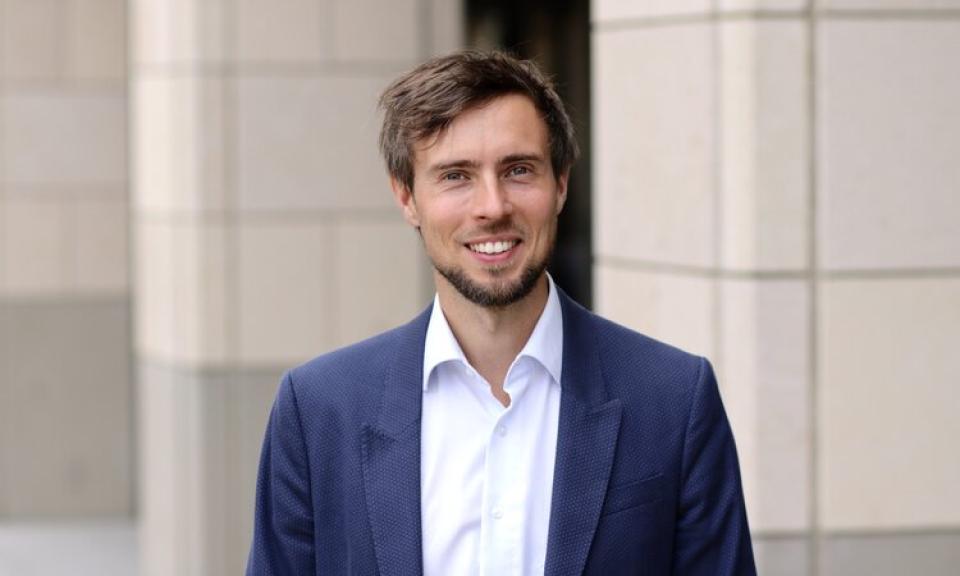
Written by
Published
Category
Key topics
Henry Ford once called competition the "keen cutting edge of business”. But this approach comes with serious costs that can be mitigated by embracing a spirit of collaboration with your rivals.
Competition drives us to reduce costs, innovate, and work hard to gain an advantage in the marketplace. Framing business in this way alone, though, risks adopting a mindset which is all about outcompeting rivals to reach the top. This ignores the central role that collaboration, cooperation and mutual support play in driving and maintaining success in business.
In the workplace, we often thrive because of the support we receive from, and give to, others. This "in it together" mindset harnesses the advantages of collaboration and working together towards shared goals, and may even apply beyond the boundaries of the workplace, in business, as well as life more generally.
Pulling together
We developed our understanding of this idea from an unexpected group: car mechanics in the neighbourhood of Dagoretti Corner in Nairobi, Kenya. Over a period of two decades, the number of garages located in Dagoretti Corner increased from a handful to 105 individual businesses.
Viewed through a competitive lens, these rival businesses should be competing fiercely with one another for clients, employees, space and prominence, with the weaker entities dying off as aggressive pricing and advertising pushes them out. Instead, more and more individual businesses have come to populate Dagoretti Corner, while the existing ones survive and thrive.
Through fieldwork and interviews, we found that, rather than competing against one another, the businesses adhere to the Kenyan ethos of "Harambee" – Bantu for "let us all pull together". This sees them create a welfare system, supporting each other to survive amid the harsh conditions of life in Nairobi.
Non-competitive growth
There are a number of features underpinning this welfare system. For example, business owners who we would expect to compete against each other instead regularly save and invest together, using the funds for shared purchases and to provide each other with credit opportunities. They also respect that each business has its own set of clients – a customer base that grows organically through word of mouth and referrals based on the high quality of their work, rather than advertisement.
Taking a client from another business is viewed as disrespectful or even fraudulent, but if a business has too much or too little work, the owner will often choose to share out clients or employees, mitigating the risk of one garage leaving others behind. This means that instead of going bust and being taken over by their neighbours, businesses are supported through difficult times.
The existential challenges of the modern world have sparked a search for new ways to organise, work, and find meaning in our lives and careers
There’s also an interpersonal element at play. For example, whenever a business owner or a member of their family faces severe illness – which often comes with significant monetary costs – their peers make donations to provide financial aid and visit the family to offer emotional support.
Collectively, these approaches produce a welfare system where we would expect hypercompetition and conflict to be the norm. This is not unique to Kenya – this type of mutual support between businesses exists across the Global South. And, while saving money together with colleagues or providing financial aid to rivals might be a stretch, there are aspects of this cooperative mindset and behaviours running through all workplaces that can be harnessed to provide a collaborative edge.
Harnessing the collaborative edge
The existential challenges of the modern world have sparked a search for new ways to organise, work, and find meaning in our lives and careers. Where a competitive edge may once have been the goal, many of us now value work-life balance, relationships, mental health and wellbeing above pure career success.
With this in mind, there is power in moving closer together and creating something larger than the sum of its parts. The car mechanics in Dagoretti Corner show us that by prioritising thriving together, we can harness a collaborative edge that sees everyone benefit, though we're in dire need of more examples.
We often thrive most because of the support we receive from, and give to, others
Harnessing the collaborative edge in your workplace or business can be extremely powerful. The Harambe Entrepreneur Alliance, for example, brings together high-impact African and African-diaspora entrepreneurs to support each other through mutual mentoring, investment, and network sharing. Rather than competing against each other, the power here lies in generating a collectivist spirit, because only as a collective can large-scale challenges be addressed to bring about transformative change.
Of course, this doesn’t mean that competition is irrelevant, but competition comes with psychological costs – it can be lonely, isolating and stressful. Making use of the collaborative edge can help balance out these psychological costs, moving us closer both to shared goals in work and business, and to enriched lives that are worth living.
This article draws on findings from "Survivalist Organizing in Urban Poverty Contexts" by Tim Weiss (Imperial College London), Michael Lounsbury (University of Alberta) and Garry Bruton (Texas Christian University).


